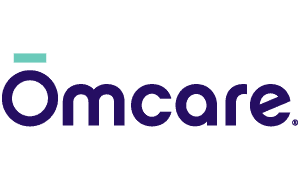Medication non-adherence is when medication is not taken as prescribed. Especially in patients with a chronic condition, medication non-adherence leads to bad health outcomes and even causes 125,000 preventable deaths every year.
Medication non-adherence is also an expensive issue. It leads to $100 billion in preventable medical costs every year. Plus, patients who aren’t taking their medicine properly are 25% more likely to be hospitalized—adding more stress to an already overburdened hospital staff.
All of this begs the question: How can we improve medication adherence? We’ll dive into the details.
What is medication adherence?
Medication adherence is the ultimate goal. It’s when a patient takes 80% or more of their prescribed medication doses, leading to positive health outcomes and proper management of chronic diseases.
Currently, only 50% of U.S. adults take their medication properly. This is important especially for Medicare Advantage plans, because 41% of the Medicare Star Ratings is influenced by proper prescription management and medication adherence. Specifically, medication adherence for oral diabetes medications, cholesterol, and hypertension are triple-weighted in a plan’s Star Rating.
When a plan is rated higher, more people enroll in it. 90% of Medicare beneficiaries are enrolled in a plan with a 4.0 rating or above, which means improving your Star Rating should be your first priority to increase enrollees.
Here is how to improve medication adherence to help increase your Star Rating:
How to increase medication adherence
1. Understand the reasons for non-adherence
In order to improve medication adherence, it’s important to understand the reasons why patients aren’t following their medication schedules. Here they are:
- Forgetfulness: 63% of medication non-adherence cases are because patients forgot. This is especially a problem for patients with dementia or Alzheimer’s.
- Cost: 1.1 million Medicare patients are expected to die over the next decade due to prescription costs. Even when a patient has great health insurance, their medication might cost too much, so they stop taking them.
- Adverse side effects: Many medications cause adverse side effects, such as extreme nausea, so patients stop taking their medication altogether. Unfortunately, not taking the medication provides temporary relief, but it causes more issues down the road.
- Trouble managing multiple medications: Many patients have multiple medications–-all with different refills, prescription schedules, and dosages. It becomes too challenging to manage so many medications.
- Lack of health literacy: 36% of adults have low health literacy, which means they don’t understand health and medicine. These patients can’t make educated decisions about their bodies and often leads to a lack of understanding for what they’re supposed to do.
- Mental illness: Between 40 – 60% of patients who are mentally ill don’t adhere well to their medication schedules. Mental illness is a huge risk factor when it comes to non-adherence.
Knowing the reasons why patients aren’t properly taking their medication allows you to proactively take steps to improve adherence. Ask personalized questions to get a sense of what’s causing the patient to skip medication, and address the reasons head-on.
2. Simplify communication and education
The average Medicare beneficiary reads at a 5th grade level, which is a problem because most healthcare communications are written at a 10th grade level or higher. Medicare patients need simple, easy-to-read language to help them improve their medication adherence.
Cut out the medical jargon and focus on clearly communicating the treatment plan in everyday language. Explain in common terms what could happen to the patient if they don’t adhere to their medication plan.
Another way to simplify communication is by making it possible for patients to reach providers via phone, portal, or video chat. Not every single question warrants an in-person visit, and making providers accessible saves time. It also drives better medication adherence.
3. Make treatment plans easy to follow
Medication plans should be explained well, and they should be easy for the patient to follow. A patient can’t follow a treatment plan they don’t understand. There should be no surprises for the patient when it comes to how much they need, when they should take their medication, and where they need to pick it up.
One way to do this is: Print the patient’s medication plan and provide them with a copy. When listening to a diagnosis and medication plan in the office, patients can feel overwhelmed, causing them to forget what you said. Printing out the plan in easy-to-follow steps makes it simpler for patients.
Another way to keep plans simple is by sending text or call reminders. They might understand their plan, but forget to follow it in their daily lives. Since forgetfulness causes the majority of medication non-adherence cases, sometimes it’s as simple as sending a reminder text.
4. Use automatic pill delivery and dispensers
Patients often forget to take their medication or order refills. In the Express Scripts medication non-adherence study, 20% of patients did not renew their prescriptions on time, and 10% put off refilling their prescriptions. Automatic pill deliveries can combat this issue. Patients don’t even have to leave their homes—medication gets delivered right to their doorsteps.
Beyond forgetfulness, another common reason for medication non-adherence is that patients find it challenging to manage too many prescriptions. It gets complicated to sort out all the medication, their refills and doses, and when they need to be taken. One way to overcome this issue is to use automatic dispensers that deliver the right dose of each medication.
Medicare Advantage Plans: Rely on Ōmcare
Automatic pill deliveries, dispensers, reminders, and easy accessibility to providers make medication adherence much simpler for many patients. This helps Medicare Advantage plans reach the Star Ratings they need.
Ōmcare streamlines and simplifies the entire medication management process:
- Medication is delivered to your patient’s doorstep.
- Prepackaged medication is dispensed to patients in the right amount, at the right time.
- Daily (or multiple times a day) check-ins connect patients with caregivers so they can ensure medication adherence on a dose level.
Ōmcare’s Home Health Hub® keeps your patients on track for positive healthcare outcomes. Reach out to Ōmcare today to learn more!

